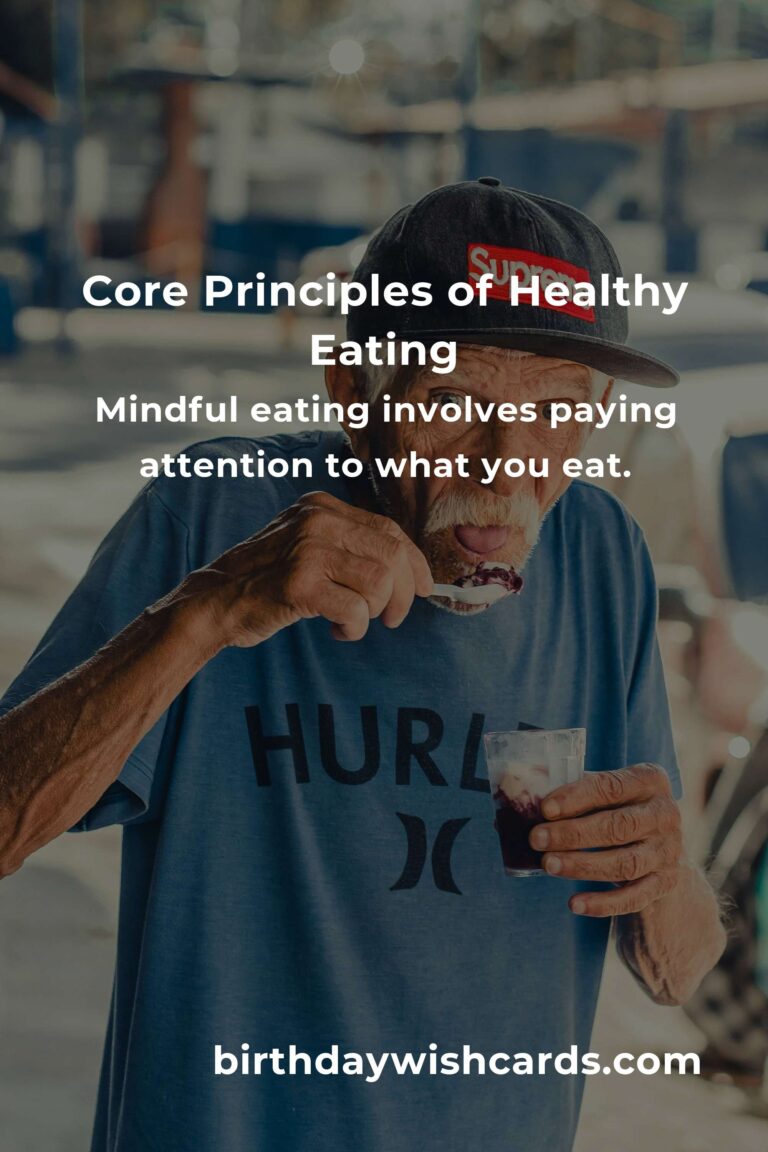
In today’s fast-paced world, maintaining a healthy diet can seem like an overwhelming task. With so many diets and nutrition advice available, it’s easy to get lost in a sea of information. However, understanding and implementing basic healthy eating principles can simplify your journey towards better health.
Understanding the Basics of Healthy Eating
Healthy eating is not about strict dietary limitations, staying unrealistically thin, or depriving yourself of the foods you love. Rather, it’s about feeling great, having more energy, improving your health, and boosting your mood. The cornerstone of a healthy diet should be to replace processed food with real food whenever possible.
Principle 1: Balance Your Plate
One of the fundamental principles of healthy eating is to ensure your meals are balanced. A balanced plate consists of a variety of food groups, providing all the essential nutrients your body needs to function properly.
Your plate should include portions of vegetables, fruits, lean proteins, and whole grains. Vegetables and fruits should occupy half of your plate, as they are rich in essential vitamins and minerals.
Principle 2: Portion Control
Portion control is crucial in preventing overeating, which can lead to weight gain. Be mindful of serving sizes, and try to eat slowly to allow your body to signal when it is full.
A good tip is to use smaller plates, which can help you trick your brain into feeling satisfied with less food.
Principle 3: Stay Hydrated
Water is an essential part of a healthy diet. It helps to keep the body hydrated, supports digestion, and helps to eliminate toxins.
Aim to drink at least 8 glasses of water a day. You can also include herbal teas and water-rich foods like cucumbers and watermelon to stay hydrated.
Principle 4: Limit Processed Foods
Processed foods are often high in unhealthy fats, sugars, and sodium, which can contribute to various health issues such as obesity, heart disease, and diabetes.
Try to limit your intake of processed foods and instead focus on whole foods like fruits, vegetables, lean meats, and whole grains.
Principle 5: Mindful Eating
Mindful eating is about being present and aware of your eating habits and choices. It involves paying attention to what you eat, savoring each bite, and listening to your body’s hunger cues.
By practicing mindful eating, you can develop a healthier relationship with food and avoid overeating.
Conclusion
Navigating the principles of healthy eating doesn’t have to be complicated. By focusing on balance, portion control, hydration, limiting processed foods, and mindful eating, you can lay the foundation for a healthier lifestyle.
Remember, it’s not about perfection but making small, sustainable changes that lead to lasting health benefits.
Healthy eating is about feeling great, having more energy, and boosting your mood. A balanced plate consists of a variety of food groups. Portion control is crucial in preventing overeating. Water is an essential part of a healthy diet. Limit processed foods and focus on whole foods. Mindful eating involves paying attention to what you eat.
#HealthyEating #Nutrition #BalancedDiet #MindfulEating #Wellness













